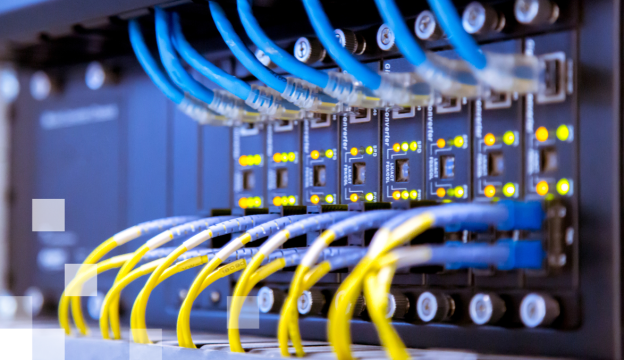Fundamentals of Data Communication
Within the framework of this training, we provide an opportunity to gain a comprehensive understanding of data communication, telecommunication technology, as well as the principles and basic terms of the construction and operation of their systems.
Course target
Promote the development of knowledge and skills about data communication and telecommunication technology, the principles of construction and operation of their systems, as well as basic terms.
Audience
- ICT managers;
- Consultants and customer relationship managers who want to gain basic knowledge of data communications networks;
- Professionals in the field of telecommunications and data transmission services with or without prior knowledge.
At Course Completion you will be able to
- Orientate yourself in information about data communication, telecommunication technology, as well as the principles of construction and operation of their systems.
- To understand and apply the basic terms of data communication and telecommunication technologies and their system structure in their professional everyday life.
Prerequisites
Basic knowledge of information and communication technologies is desirable.
Training materials
Training materials prepared by BDA.
Certification Exam
Not intended.
Course outline
Basics of data communication
- Overview of data communication elements (DTE, DCE, packets, bits and bytes, data storage)
- Data representation (decimal, binary, HEX, ASCII).
Data communication models
- OSI model
- TCP/IP model.
Data communication techniques
- Data transmission methods (analog, digital, throughput, serial, parallel, synchronous, asynchronous)
- Analog modulation (amplitude, frequency, phase)
- Digital modulation (ASK, FSK, BPSK, QPSK, QAM)
- Multiplexing techniques (FDM, TDM, CDM, WDM)
- Switching techniques (channel, packet).
Network topologies
- Physical and logical topologies: bus, ring, star, tree, hybrid, mesh.
Network types
- Local area network (LAN), metropolitan area network (MAN), global or wide area network (WAN).
Data transmission environments
- Cables – twisted pair cable, coaxial cable, optical cable
- Wireless technologies – antennas.
Network equipment
- Network card (NIC), modem, hub, switch, bridge, repeater, router, gateway.
Network protocols
- Ethernet and ARP
- IP, TCP, UDP, ICMP.
WAN network technologies and protocols
- 25, Frame Relay (FR), Asynchronous Transfer Mode (ATM), Digital Subscriber Line (xDSL), Integrated Services Digital Network (ISDN), Multiprotocol Label Switching (MPLS)
- Plesiochronous Digital Hierarchy (PDH), Synchronous Digital Hierarchy (SDH).
Network operating systems and network services
- Network architecture (clients, servers, P2P, virtualization)
- DHCP, NAT, SNMP, FTP, TELENET, SNMP, HTTP
- Microsoft Windows, Linux, Unix.
Converged network technologies
- Principles of voice coding
- Principles of video coding
- Voice over IP (VoIP)
- IP television (IPTV).
Network security
- Network attacks (viruses, DoS, spoofing, brute force password attacks, session hijacking attacks, man-in-the-middle attacks)
- Antivirus software, firewall, Proxy servers, packet filtering, Access Control List (ACL).
If you want to get more information about this course, please contact us by phone +371 67505091 or send an e-mail at mrn@bda.lv.






